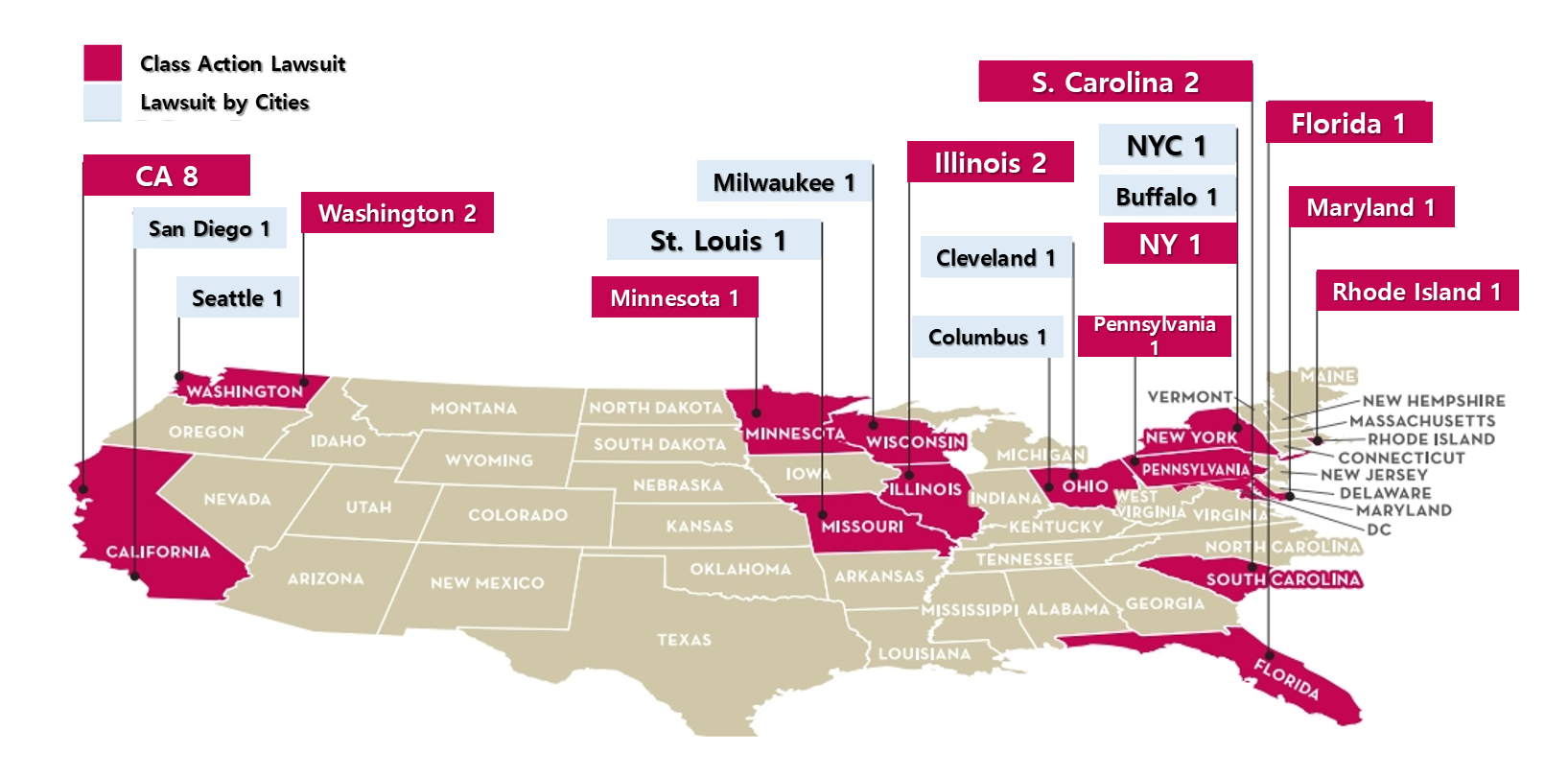Nearly 30 class action and administrative lawsuits have been filed against Hyundai Motor Company across the country.
The series of lawsuits highlights the urgent need to improve the brand image of Hyundai, which has been dogged by controversy over defective vehicles, service center issues, illegal employment, and a spike in vehicle thefts.
Based on a database of class action lawsuits filed with the courts, a total of 20 class action lawsuits were filed against Hyundai over a four-year, nine-month period from April 2018 to January 2023.
The data only includes cases against Hyundai Motor America, Genesis North America, and Hyundai Capital America (HCA), a subsidiary that provides financial services such as vehicle financing and leasing, are named as defendants.
“It’s a search based on a public database of federal court filings, so the actual number could be much larger,” a person with the matter said.
By state, the most class action lawsuits against Hyundai were filed in California (eight). They were filed in 10 state courts, including Illinois (two), South Carolina (two), Washington (two), Florida (one), Maryland (one), Minnesota (one), New York (one), Pennsylvania (one), and Rhode Island (one).
The most recent class action lawsuit was filed in January in federal court in the Northern District of Illinois, entitled “Blue Link Functionality Problems in Hyundai and Genesis.
Hyundai’s Blue Link is a connectivity service offered by Hyundai since 2014 that enables remote control, safety and security features. Hyundai has provided Blue Link to consumers for free and then switched to a paid service after a certain period of time.
“Hyundai and Genesis North America should have notified and announced to the Federal Communications Commission (FCC) that Blue Link would be replaced by 4G, 5G, etc.,” the plaintiffs claimed in the complaint, adding that “despite the imminent obsolescence of 3G, defendants installed 3G-only systems in the vehicles.”
Other class action lawsuits against Hyundai include: defective 2021 Genesis GV-80 SUVs; foul odors inside Palisade vehicles; false advertising of the 2020 Ioniq hatchback’s rear cross-traffic collision avoidance system; engine fires and malfunctions; loss of engine power, noise, engine knocking, and malfunctions; misleading lease pricing; defective 2017 Santa Fe powertrain; and peeling wheels on 2017 and later Santa Fe and Veloster models.
For example, the number of class action lawsuits filed against Hyundai is higher than that of Tesla (15) during the same period.
There have also been a number of administrative lawsuits filed by government agencies against Hyundai. On July 7, the city of New York filed a lawsuit against Hyundai and Kia, alleging that the companies’ failure to install anti-theft system in certain model vehicles has led to a spike in vehicle thefts, which has burdened police and citizens.
This is the eighth such administrative lawsuit by a government agency. Previously, cities of Buffalo, St. Louis, Cleveland, Milwaukee, San Diego, Columbus, and Seattle have sued over Hyundai and Kia vehicle theft issues. The city of Madison, Wisconsin, is currently preparing to file a lawsuit against Hyundai, so administrative lawsuits by government agencies are likely to continue.
In addition, the attorneys general of 23 states, including Kansas, urged Hyundai and Kia last month to be more aggressive in strengthening their anti-theft measures.
By Yeol JAng [support@koreadaily.com]





